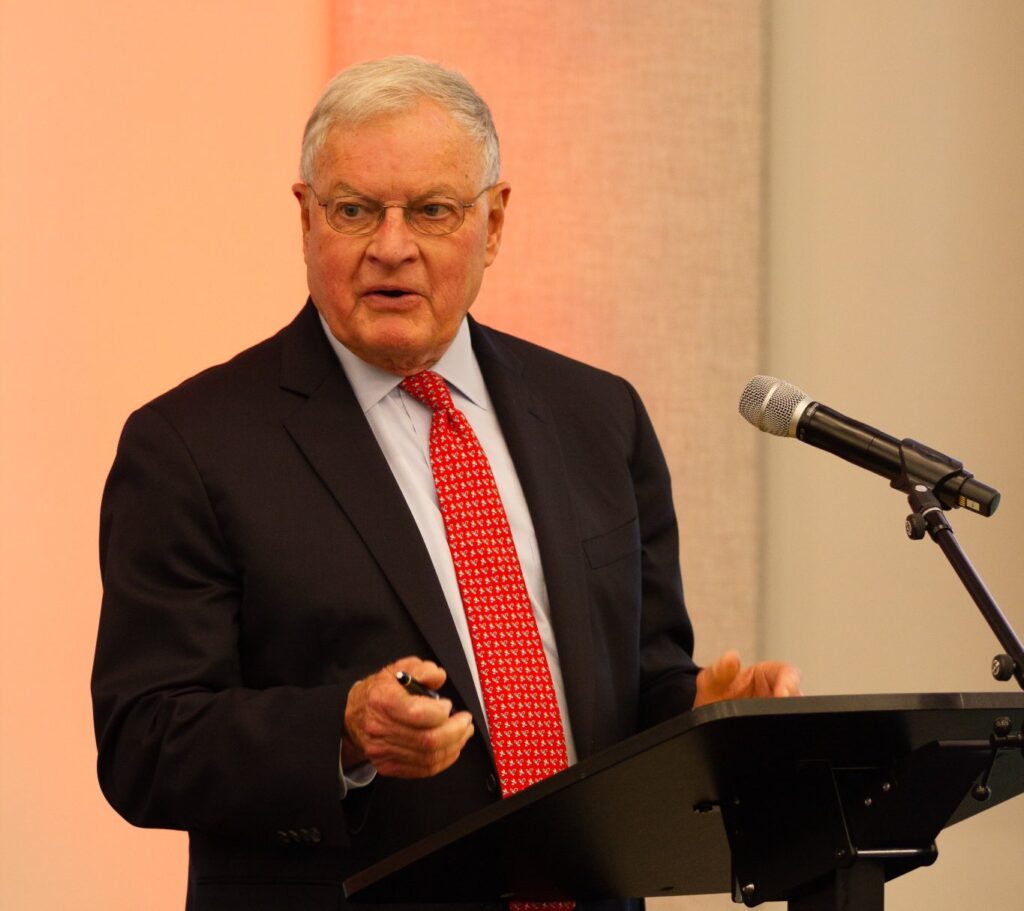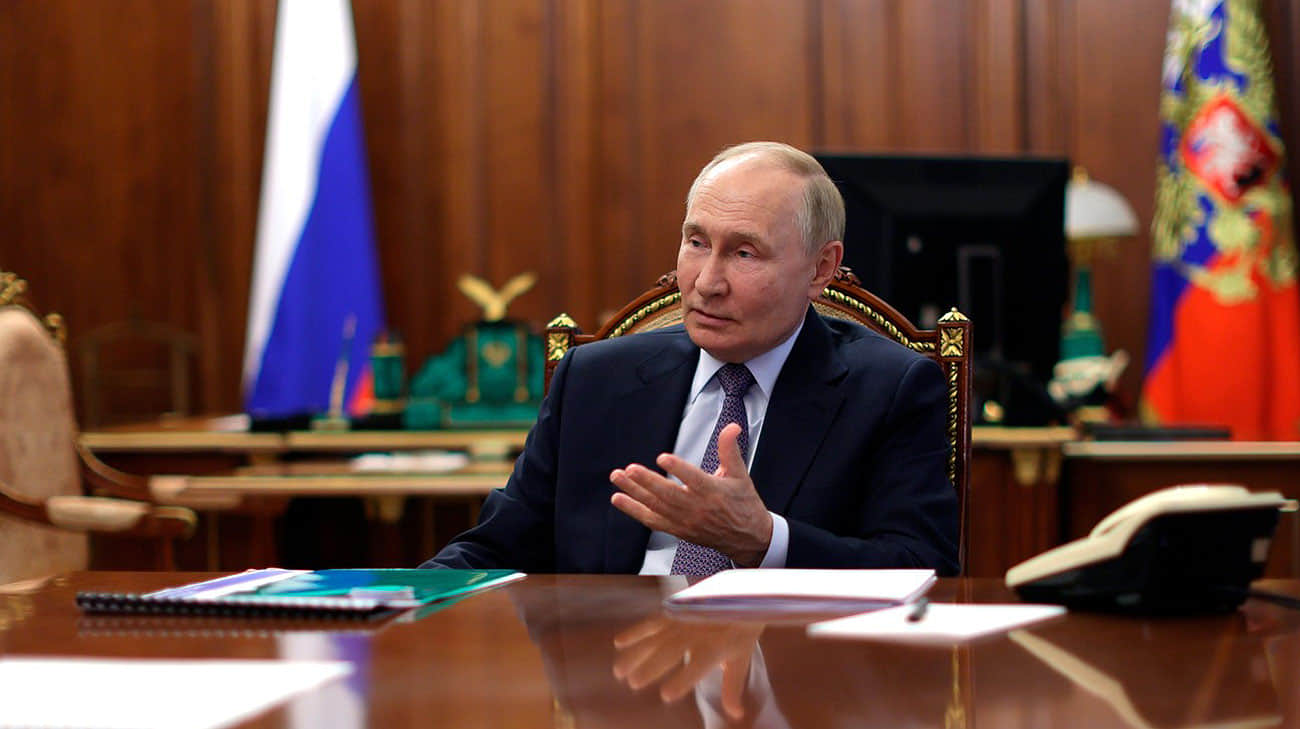Ukraine can win back US Republicans – here’s how, says DC expert
"You put all of your eggs into the Democratic basket; now you need to improvise," says Filip Styczynski, a former TVP World chief now directing operations at Washington's Center for Intermarium Studies.


Ukraine’s relations with the Republican party have seen ups and downs both before and after the fully-fledged invasion on 24 February 2022.
With Donald Trump’s return to power and Republicans controlling Congress, their support has become even more crucial for Ukraine’s defense and its resistance against Russian aggression. To understand how to strengthen this vital relationship, we turned to Filip Styczynski, who brings a unique perspective bridging European and American conservative viewpoints.
As the former chief of Poland’s TVP World and current Director of Operations at the Center for Intermarium Studies at the Institute of World Politics in Washington, D.C., Styczynski has extensive experience covering the Russo-Ukraine war for English-speaking audiences. At TVP World, he made bold editorial decisions, notably being the only European media director to call Putin a “Russian dictator” on TV officially.
In an exclusive interview with Euromaidan Press, he explains the Republican train of thought and suggests ways to improve relations with the new US administration.
EP: Are Republicans ready to collaborate with Central and Eastern Europe?
FS: The Republicans are ready to collaborate not only with Poland but Ukraine, the Baltic States, etc. It might not be a crucial region like China, but it is a very important part of their foreign policy. So, China is an absolute top priority, and then peace in Ukraine.
Generally, Trump is not very sympathetic toward Germany and has great relations with Polish President Andrzej Duda. It was during Trump’s administration that the Three Seas initiative really came to life, and Poland started receiving its first LNG from the US to diversify its sources of gas in Central Europe.
EP: Some believe that Putin and Trump are very close, if not friends. What’s your view?
FS: I was arguing against this narrative even earlier than these days. Basing your entire opinion about Trump and American relations with Russia on several interviews is wrong.
We should concentrate on the actual fruits of his policy and administration. He was the one who signed a law that imposed sanctions on any firm that helps Russia’s state-owned gas company, Gazprom, build the Nord Stream 2. That’s not a friendly thing to do. It was also during his presidency that American soldiers neutralized 200 mercenaries from the Wagner Group in Syria.
This is the language that Putin understands. Due to this, many Republicans hope he’ll continue Reagan’s “peace through strength” policy.
Nobody knows what the strategy is when it comes to Trump’s famous “peace in Ukraine” initiative. It’s all very mysterious. But what we know for sure is that the people who are around Trump right now and are experts in foreign affairs are not really sympathetic toward Russia.
A big report prepared by the American First Policy think tank during the campaign stated that all developments in Ukraine were due to poor management from Democrats and President Joe Biden. It was during Barack Obama’s administration when Putin first attacked Ukraine and annexed Crimea. During Biden, they decided to attack Ukraine again.

So, they argue that with a strong stance from the United States, it would have never happened. And that’s the reason why Putin didn’t attack Ukraine during the first Trump presidency.
They also take a swipe at the slow delivery of weapons. Now, we need to do everything we can to stop the war and the bleeding of the Ukrainian people.
But if Putin refuses, then we will deliver everything to the Ukrainian people to finish the Russians in the field, right? Most Republicans know their job and understand the Russian threat much better than the Biden administration.
EP: How do Republicans view Ukraine in general? What are the main points of contention?
FS: They underline that Ukraine is very brave, fighting for freedom against unprovoked aggression.
However, I think there are some misconceptions about Ukraine as a nation and its government. I’m unsure that Volodymyr Zelenskyy did a great job selling Ukraine’s image in the US as a very liberal country while aligning with the leftist agenda. However, it’s not the most popular ideology in the US right now. Especially the far-left woke agenda. Republicans perceive Zelenskyy as a person who implemented parts of the Democratic party policy with a heavy emphasis on the trans community, for example.
Take the standoff between Sarah Ashton Cirillo and J.D. Vance. When she/he accused people of spreading Russian propaganda, J.D. Vance retaliated.

Russia really succeeded in selling its propaganda among some American conservatives, saying that Russia is a Christian Orthodox country and a protector of conservative values. In other words, Russia is closer to the US in a civilizational sense. You can observe the rules of this propaganda when you watch Joe Rogan, Candace Owens, and so on.
The reality changed completely since 2022, and you need to leverage your position right now by being proactive and helping Republicans understand you before they do it for you.
You cannot be arrogant and portray all of the people who are not really pro-Ukraine as pro-Russian or stupid because it’s completely counterproductive.
Zelenskyy’s honeymoon when he was a political rockstar is over. You need to understand it as well as that you put all your eggs into one basket and adapt to a new reality that Ukraine is not a superpower and just stop blackmailing Trump. It’s really against your interests.
EP: What can Ukraine do right now to improve its relations with the US?
FS: I can offer some things.
- De-associate yourself from the far-left/woke agenda. It’s not mainstream anymore and is not doing you any favors. The damage is sufficient already.
- Hold your elections. In Poland and Central Europe, we understand your reality much better than people on another continent from a completely different culture. People in the US don’t. If you’re fighting for the same rights and you want to be part of the free world, you need to avoid situations when people view it as a standoff between two dictators, no matter how bizarre this may sound to you. We know it’s difficult to hold the election, but can you tell me it’s completely impossible? You have your embassies everywhere. And ultimately, it’s your problem to figure it out.
- You should talk about business and energy with Trump and focus on the Three Sea initiative within the European Union and NATO. It’s important for the Trump administration and for the stability and security of our region and part of the bigger energy plot that is being established right now. Odesa and, hopefully, Crimea someday are essential to it. It’s hard to talk about security issues and American LNG supplies in the Black Sea with the Russian Fortress in Crimea because we cannot be sure that we will effectively protect the whole infrastructure with Russia on our doorstep.
- Do not use moral blackmail against Trump and his people because it will not work with this administration.
- Finally, try being a bit nicer to your neighbors—not just Poland but even Hungary, no matter how much you dislike Viktor Orban. Take real steps toward resolving the Volyn matter and everything you avoided in the past years, like the minorities issue. The narrative you’re fighting for the whole world and so on is not actual anymore.
Read more:
- FT: Trump plans to maintain US military aid to Ukraine after inauguration
- Zelenskyy confirms Trump advisor Keith Kellogg to visit Ukraine in early January
- Reuters: Russian LNG behemoth attempts to fix relations with US
- Zelenskyy to Trump and Macron: Putin doesn’t want to end war
- “Trump has tools to really hurt Putin,” says US Republican professor
You could close this page. Or you could join our community and help us produce more materials like this.
We keep our reporting open and accessible to everyone because we believe in the power of free information. This is why our small, cost-effective team depends on the support of readers like you to bring deliver timely news, quality analysis, and on-the-ground reports about Russia's war against Ukraine and Ukraine's struggle to build a democratic society.
A little bit goes a long way: for as little as the cost of one cup of coffee a month, you can help build bridges between Ukraine and the rest of the world, plus become a co-creator and vote for topics we should cover next. Become a patron or see other ways to support.



